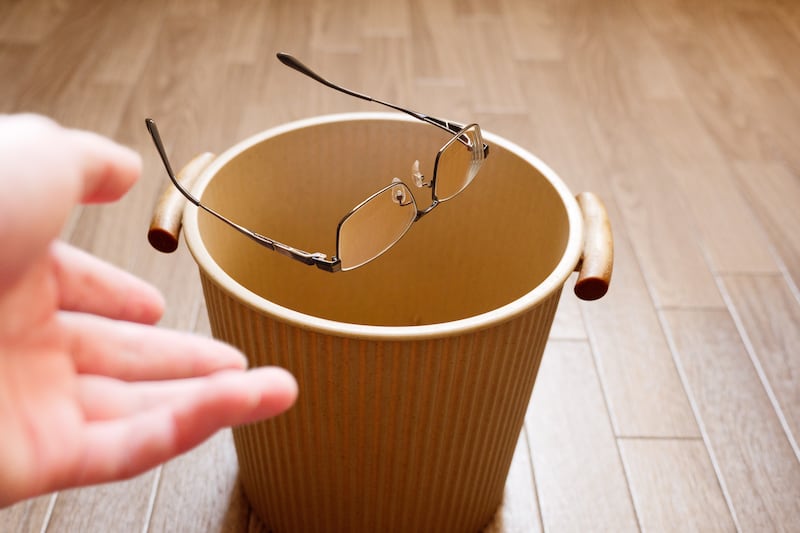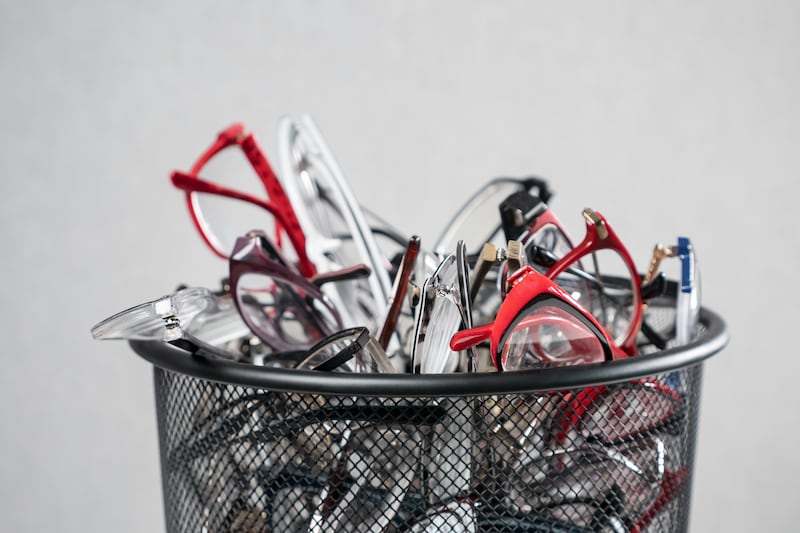Last December I noted in this column some of the memorable things which had occurred the previous year. Not surprisingly considering my age a couple were necessary medical interventions, namely the removal of a benign tumour on my leg and the replacement of the lenses in my eyes due to glaucoma.
I feel the need to correct my glaucoma diagnosis; I didn’t have glaucoma, I had cataracts. I could be smart and say I had meant to write cataracts but due to my poor eyesight wrote glaucoma by mistake, but that isn’t true, I’d a senior moment and got confused. I wasn’t mistaken however about the replacement lenses, that did happen.
Having been lucky with my eyesight until the age of 50, I began to perceive a deterioration so gradual it took time to cotton on to what was happening.
For instance, when reading the Irish News I noticed the distance between me and the paper increased weekly. The last straw was when I discovered I couldn’t read the ingredients on food labels. This was serious, as being coeliac I must constantly check there’s no gluten in what I eat.

It didn’t take my optician long to diagnose what was needed and to kit me out with a pair of glasses which I found comfortable without being what as children we called ‘specky’. The first time I wore them watching television I terrified my wife by roaring, “My God, it’s like watching in HD.”
I happily wore glasses for the next 10 years but at 60 my ocular deterioration progressed to the point where I needed bifocals. Unfortunately, I couldn’t get on with them as my head constantly bobbed up and down like the toy dog my parents had in the back window of their car in the seventies.
My optician kitted me out with a pair of glasses which I found comfortable without being what as children we called ‘specky’. The first time I wore them watching television I terrified my wife by roaring, “My God, it’s like watching in HD”
So, I ended up with not one but three pairs of glasses. One pair for reading, one for the computer and one for out and about. The problem was I kept forgetting which pair I had on, so would be watching television with my computer glasses and out walking with my reading glasses. To make things worse I kept sitting on them and with a posterior as big as mine this necessitated replacement rather than repair.
Sick of the costs involved I decided to get laser treatment. This involved a battery of preliminary tests. On their completion I sat in front of a woman with a frown on her face. Flicking through my results she said, “I’m sorry Mr O’Kane, but you aren’t a suitable candidate for laser treatment.”
Turns out at 60 I was too old; this didn’t come as a complete surprise so with a slightly dented ego I stood to leave. But she stopped me, saying: “I must also inform you we’ve detected cataracts on both your eyes.”
This did come as a shock as I learned the trajectory of that condition invariably resulted in replacement lenses. The waiting time for this procedure on the NHS stretched into years so I went private, opting for prescription replacements and informed my children due to the cost involved they’d have to forgo university*.
On the morning of my first operation, I met my ophthalmic surgeon who explained what was about to happen. As I rose to leave, he asked if I’d any questions. I know this was meant as a polite formality and that 99% of patients replied no, but I did have one question: “If you don’t mind me asking, when was the last time you had your eyes checked?”
Six months after the surgery my only minor side effect is what I call phantom spectacles syndrome as every night I reach to remove non-existent glasses before I go to sleep
When I told my wife later about this, she was horrified I’d ask such a thing. I still think it was a very sensible enquiry as the man was about to slice open my eyeball and replace the lens.
The surgeon didn’t mind and told me his eyes were checked regularly, something he proved with two successful operations. Six months after the surgery my only minor side effect is what I call phantom spectacles syndrome as every night I reach to remove non-existent glasses before I go to sleep. I know they aren’t there, but I can still feel the pressure of them on my nose.
My new lenses bear out the adage that everything in life comes with a price. For while I now possess 20/20 vision at 63 years old I’m condemned to see every wrinkle and grey hair on my aged head each time I look in a mirror.
*No child’s education was harmed during the writing of this column.










